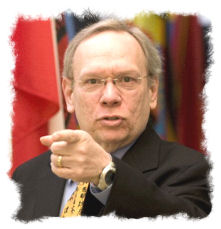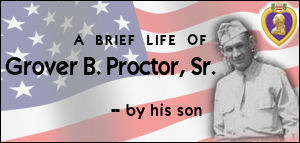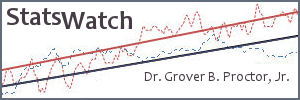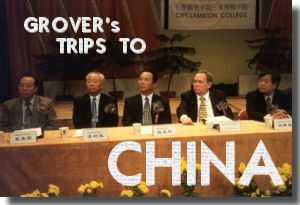|
It has been one year since Oliver Stone's film JFK brought the controversy surrounding the assassination of President John Kennedy once again to the forefront of popular interest. Predictably, there has been a spate of media attention, including books both by those involved in the assassination and by researchers and historians. Of the more than twenty titles to hit the stands recently, here is a browser's guide to the best.
The most frequently-asked question from people who have seen JFK is "Was all that really true?" Since there is no simple yes or no answer to that, it is good to refer them to JFK: The Book of the Film, Applause Books' edition of the screenplay, complete with 340 footnotes interspersed throughout the text which cite the sources from which Stone and co-author Zachary Sklar took their material.
The investigation of the assassination by New Orleans District Attorney Jim Garrison, which served as Stone's inspiration and narrative backdrop, is historically explored and favorably assessed in Destiny Betrayed: JFK, Cuba, and the Garrison Case by James DiEugenio (Sheridan Square Press). An opposing, almost shrill, view can be had in Edward Jay Epstein's 1968 Counterplot, recently republished in a one-volume trilogy of his works (including Inquest and Legend) as The Assassination Chronicles (Carroll & Graf).
Those eager to know more about the film's mysterious "X," the character who provides the framework of Stone's conspiracy theory, will be interested to know that he does exist. His name is L. Fletcher Prouty and he has published JFK: The CIA, Vietnam and the Plot to Assassinate John F. Kennedy (Birch Lane Press). From his unique perspective as the Pentagon's liaison officer with the CIA during the Kennedy years, he weaves an informed and quite sinister view of governance in America.
Recommended for serious study into the seamy side of government is Deadly Secrets: The CIA Mafia War Against Castro and the Assassination of J.F.K. (Thunder's Mouth Press), an updating of Warren Hinckle and William Turner's 1981 The Fish Is Red. Must-reads to thoroughly understand the diabolical political milieu of the early 1960's include such chapters as "The Secret of the Brothers Kennedy," "The Mystery of 544 Camp Street," and (building on the latest conspiracy theme) "George Bush's Deadly Secrets." Bringing that new theme into the 1980's is the equally well documented The Mafia, CIA, and George Bush by Pete Brewton (S.P.I. Books).
A figure whose name has circulated mysteriously through assassination research is Richard Case Nagell, long believed to have specific knowledge of Lee Oswald's intelligence connections. Journalist Dick Russell has just this month published The Man Who Knew Too Much (Carroll & Graf), a massive 800-page treatise on Nagell, whom he says was "hired to kill Oswald and prevent the assassination of JFK."
The people involved in or touched by the assassination were the favorite subjects for books this year. Long-awaited by researchers is assassination eyewitness Jean Hill's story, published as JFK: The Last Dissenting Witness (Pelican). In her book, Hill describes the shambles to which her life was reduced (by governmental agencies and by people like Arlen Specter, now U.S. Senator from Pennsylvania) solely because she had the courage to assert her knowledge that the "official" version was wrong.
Dr. Charles A. Crenshaw, who treated both Kennedy's and Lee Oswald's fatal injuries in Dallas' Parkland Hospital, is also a witness with conclusions that differ from governmental agencies. In JFK: Conspiracy of Silence (Signet), he states "I have wanted to shout to the world that the wounds to Kennedy's head and throat that I examined were caused by bullets that struck him from the front, not the back, as the public has been led to believe."
Three new books purport to name names of those actually involved in the killing. In First Hand Knowledge: How I Participated in the CIA-Mafia Murder of President Kennedy (S.P.I. Books), former CIA operative Robert Morrow gives an explicit, if somewhat lurid, account of how he was involved with those who planned the assassination. Sam and Chuck Giancana, the godson and brother of Chicago mob boss Sam Giancana, ascribe guilt to their infamous relative in an anomalous little section of their biography Double Cross (Warner Books).
John Craig and Philip Rogers paint a chilling portrait of Charles Rogers, a man suspected in the dismemberment deaths of his parents in 1965, whom they suspect as being The Man on the Grassy Knoll (Avon). Weaving together a serpentine biography filled with intrigue and deceit, they end with Houston Police Forensic Artist Lois Gibson identifying pictures of two of three "tramps" arrested behind the Grassy Knoll just after the assassination as Charles Rogers and Charles Harrelson (convicted professional killer and father of Cheers star Woody Harrelson).
Finally, two reissues deserve mention. Seth Kantor's remarkably astute and thoroughly researched biography, published in 1978 as Who Was Jack Ruby? has been reissued in paperback with an overly sensational cover which reads "The facts were too hot for the movie to reveal. Now read the shocking lies and explosive truth behind....The Ruby Cover-Up" (Zebra). Nevertheless, it is a superb volume.
And the book which first brought to light Lee Oswald's alleged telephone call to Raleigh, North Carolina, from the Dallas jail is once again available. On page 287 of Alan Weberman and Michael Canfield's Coup d'Etat in America: The CIA and the Assassination of John F. Kennedy (Quick American Archives) one may still see the reproduction of the long distance message slip detailing a collect call from Oswald to Raleigh, area code 919, with two telephone numbers for the person called, John Hurt. The authors offer no new information on this topic, but there is considerable updating of other areas.
NEW BOOKS:
- The Assassination of John F. Kennedy: A Complete Book of Facts by James P. Duffy and Vincent L. Ricci (Thunder's Mouth Press).
Destiny Betrayed: JFK, Cuba, and the Garrison Case by James DiEugenio (Sheridan Square Press). Double Cross: The Explosive, Inside Story of the Mobster Who Controlled America by Sam and Chuck Giancana (Warner Books). First Hand Knowledge: How I Participated in the CIA Mafia Murder of President Kennedy by Robert D. Morrow (S.P.I. Books). JFK: The Book of the Film by Oliver Stone and Zachary Sklar (Applause Books). JFK: The CIA, Vietnam and the Plot to Assassinate John F. Kennedy by L. Fletcher Prouty (Birch Lane Press). JFK: Conspiracy of Silence by Charles A. Crenshaw, M.D. (Signet). JFK: The Last Dissenting Witness by Bill Sloan with Jean Hill (Pelican Publishing Co.). The JFK Assassination: The Facts and the Theories by Carl Oglesby (Signet). The Mafia, The CIA, and George Bush by Pete Brewton (S.P.I. Books). The Man on the Grassy Knoll by John R. Craig and Philip A. Rogers (Avon). The Man Who Knew Too Much by Dick Russell (Carroll & Graf). Mortal Error: The Shot That Killed JFK by Bonar Menninger (St. Martin's Press). The People v. Lee Harvey Oswald by Walt Brown (Carroll & Graf). - Who Killed JFK? by Carl Oglesby (Odonian Press).
REPRINTS:
- The Assassination Chronicles: Inquest, Counterplot, and Legend (1966, 1988, 1978) by Edward Jay Epstein (Carroll & Graf).
Coup d'Etat in America: The CIA and the Assassination of John F. Kennedy (1975) by Alan J. Weberman and Michael Canfield (Quick American Archives) Deadly Secrets: The CIA Mafia War Against Castro and the Assassination of J.F.K. (orig. The Fish Is Red) (1981) by Warren Hinckle and William Turner (Thunder's Mouth Press). The Ruby Cover Up (orig. Who Was Jack Ruby?) (1978) by Seth Kantor (Zebra Books). Rush to Judgment (1966) by Mark Lane (Thunder's Mouth Press).
|






